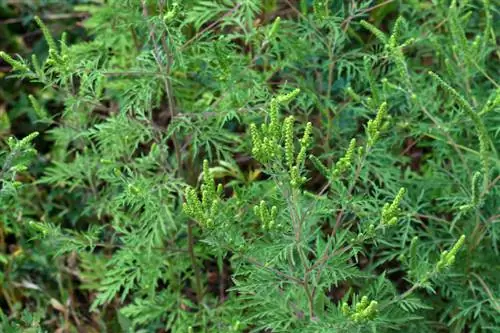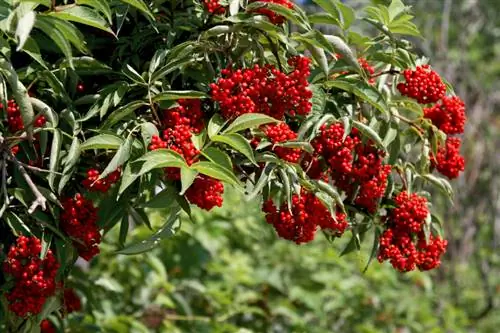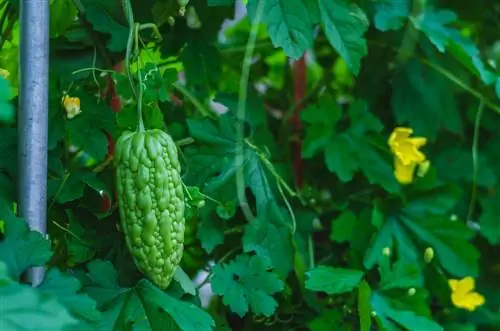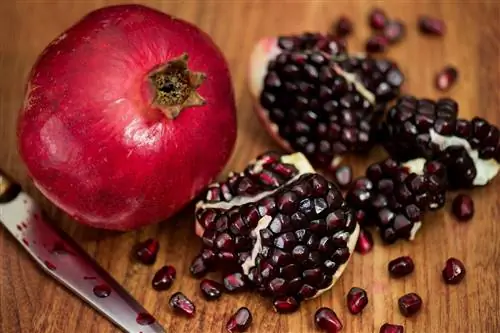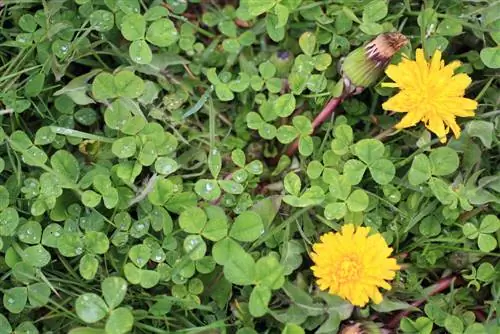- Author admin leonars@hobbygardeners.com.
- Public 2023-12-16 16:46.
- Last modified 2025-01-23 11:20.
Wormwood has been used to treat numerous ailments since ancient times. In the Middle Ages it was primarily known as a digestive aid. Today it has been forgotten despite its powerful ingredients
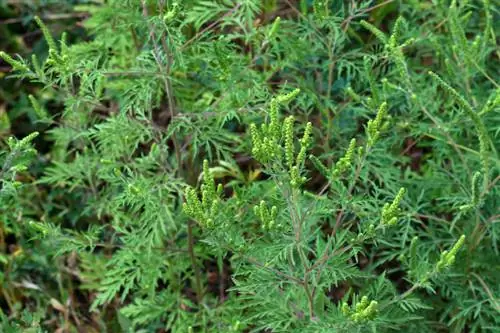
What ingredients are contained in wormwood?
Wormwood contains essential oils such as thujone, bitter substances such as absinthin, artabsin, matricin and anabsinthin, tannins and flavonoids. These ingredients have a digestive, antispasmodic and promote blood circulation as well as saliva and bile production.
Thujone: The dose makes the poison
Essential oils are contained in wormwood between 0.2 and 0.8%. Thujone stands out among them. This essential oil is not to be taken lightly. While it has a euphoric effect in small quantities, above a certain amount it causes states of intoxication.
Thujone is poisonous in high doses. The symptoms of poisoning include headaches, dizziness and cramps. But don't worry: there are varieties of wormwood such as Roman wormwood, which contain far less thujone than true wormwood.
Nevertheless, thujone should not be ignored. It damages the organism, which is why wormwood should not be consumed regularly over a period of several months. A tea made from wormwood every now and then doesn't hurt.
Bitter substances, tannins and flavonoids
The bitter substances are probably the most important proportion of active ingredients in wormwood. They make up up to 0.4% in wormwood. That doesn't seem like much, but compared to other plants it's a lot. The bitter substance called absinthin stands out in particular. It is the main component in wormwood. Artabsin, matricin and anabsinthin also occur.
In addition to the bitter substances, there are tannins and flavonoids that make wormwood a medicinal plant. They are contained in smaller proportions and are less important for its known healing properties.
How do the ingredients affect the body?
It is primarily the bitter substances in wormwood that are relevant for medicinal purposes. They stimulate the digestive juices. When wormwood is consumed in the mouth, saliva production is stimulated. In the stomach, the production of stomach acid increases and the production of bile also increases sharply.
What can wormwood be used against?
Wormwood has a wide range of uses. It helps externally with inflammatory wounds. Used internally, for example as a tea, it works against:
- Lose appetite
- Flatulence
- Heartburn
- Fullness
- Jaundice
- Hepatitis
- Cramps
- Circulation disorders
- nervous weakness
- Kidney problems
Tips & Tricks
If you are looking for the maximum amount of effective ingredients, you should harvest wormwood at its peak.

